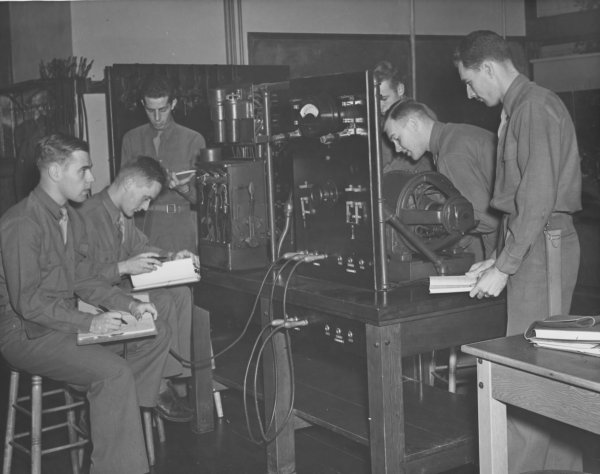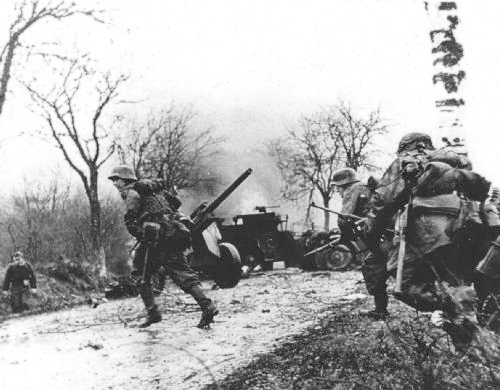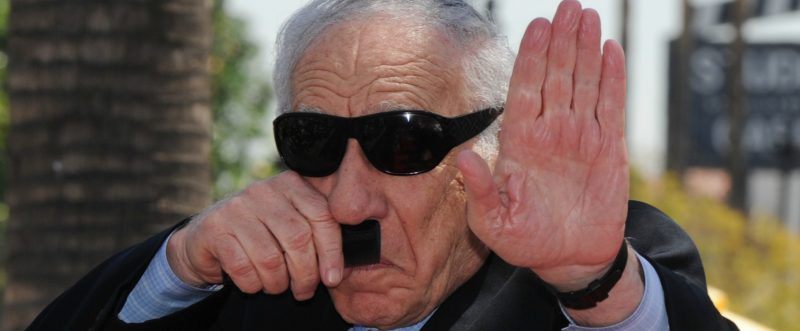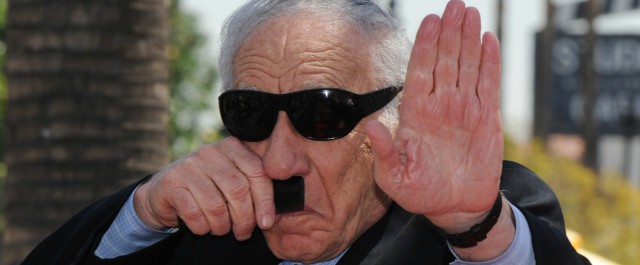The history of war is full of heroes who displayed inexplicable gallantry and heroism under the most harrowing of circumstances. And then, there are just really funny men who did their part as the rest.
Mel Brooks once quipped, “I was a combat engineer. Isn’t that ridiculous? The two things I hate most in this world are combat and engineering.” Mel Brooks would go on to become a famous movie star, writer, comedian, and producer. His films have become classics, and his humor has transcended generations to remain relevant today.
But if he hadn’t of been as skilled at clearing land mines as it turns out he was, the world would never have known the comedy genius of Mel Brooks.
A Rough Start in Brooklyn
Brooks was born Melvin James Kaminsky in 1926 Brooklyn to Jewish parents of German and Ukrainian descent. His father died at the age of two, and Brooks would grow up poor, small, and sickly in the rough neighborhoods of Brooklyn.
He often said he developed his sense of humor to spare himself problems – like a punch in the face. He would go on to graduate High School and attend a year of college before he was drafted into the Army in 1944.
An intelligent man as we would learn from his comedy, he ranked high in testing and was sent to the elite Army Specialized Training Program (ASTP). Located at Virginia Military Institute, he would be taught a variety of specialized combat tasks such as horse riding, saber wielding, and his eventual job of combat engineering.
However, the combat arms that was fighting the war overseas had a problem with some of its brightest recruits being kept out of the fight. After just 12 weeks of training for Brooks, the Army canceled the program, and he was sent to Fort Sill for regular basic training.

After training, Brooks would eventually be shipped to Europe in late 1944. Due to his reported high intelligence, his first duties were as a forward artillery observer. Making adjustment to outgoing artillery fire is hardly an easy task, and it takes exceptional knowledge with eyes on the target to do so with skill.
Eventually, he was transferred to the 1104th Engineer Combat Group just in time for the Battle of the Bulge. This last ditch effort by the Germans to push back the advancing allies would see over 250,000 German troops push into the allied lines. American speaking Germans had infiltrated the American lines wearing captured uniforms as they sabotaged communications lines and supplies.
It was under this chaotic environment that Mel Brooks would move to the front of the lines and take out German land mines.
It’s Not Good to be in the Front
Brooks would later hilariously quip in his movie, History of the World Part 1, “It’s good to be the king,” which is a statement you would never hear him make about diffusing land mines in a war. Combat engineers were often sent in ahead of the front lines to take out such obstacles, construct bridges, and utilize demolitions. They would often complete these essential combat roles under heavy artillery fire, with mortars reigning down, and snipers taking shots at them.
On five occasions, Brooks unit would have to fight as infantry and suffered casualties doing so. However, for most of the war, this engineering role would be his duty.
His unit would be the first to construct a bridge over the Roer River and would build subsequent bridges over the Rhine. But for Brooks, his primary role would be the man to stare a land mine in the face and pray he could clear it without incident.

When the war ended, his unit was conducting a reconnaissance of the Harz Mountains, and this small, sickly kid from Brooklyn had made it through the war and was discharged as a Corporal. After the war, he would make his living as a drummer and a pianist which were talents he picked up as a kid.
It was in this role that he would change his name to Mel Brooks. Then in 1949, he was hired to write jokes for an NBC show and the rest is Hollywood history. He would go on to produce classic films such as Blazing Saddles, Young Frankenstein, History of the World Part 1, Spaceballs and many more.
The Average Soldier
Brooks like most men who served in that era wouldn’t classify himself as a hero of any sort. He just served his role like any other and was happy to return home. But it must have boosted untold levels of morale to have a man like Brooks with you in war.
He would comment on war, “War isn’t hell… War is loud. Much too noisy. All those shells and bombs going off all around you. Never mind death. A man could lose his hearing.”

When asked what he thought about during the war, he replied as most men did of his era in that staying warm and staying alive on the given day consumed your thoughts. Tomorrow would have to wait for its turn before you considered it.
For Brooks being Jewish, the war would have a special place for him in liberating Jews from Nazi control. While he never came into direct contact with a concentration camp, he would see refugees and noted they looked starved and horrible.
Long after he was done fighting, Brooks would get it one last shot at Hitler when directed the 1968 film, The Producers, which had a satirical take on Adolph Hitler. Millions of average soldiers in the war would go on to great fame and success that shouldn’t overshadow the role the played in the fight be it small or large.
The world is better off that such men made it through as Corporal Mel Brooks of the 1104th Engineer Combat Group has had us laughing for decades.

